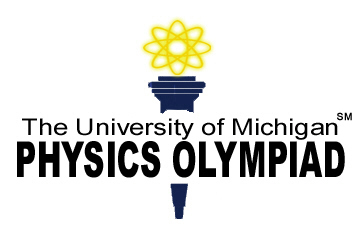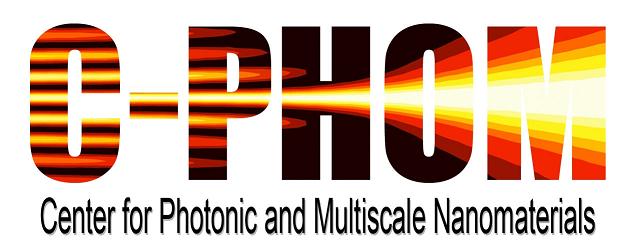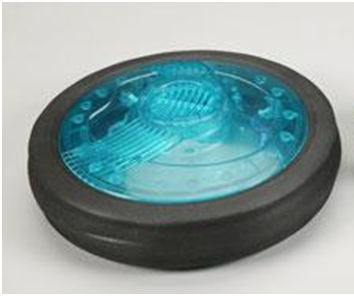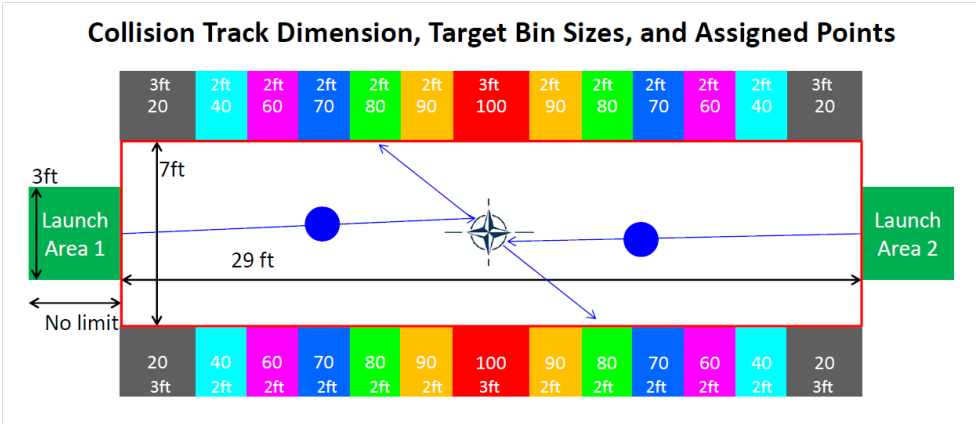 |
 |
 |
 |
| Home |
| General Information |
| Sponsors |
| General Rules |
| Registration |
|
2015 Events |
| Think or Sink |
| Katapult Range |
| Pasta Bridge |
| Egg Catcher |
| Small Higgs Boson |
| Laser Maze |
| Physics Bowl |
| Schedule |
| FAQs |
| Awards |
| 2015 Winners |
| Acknowledgements |
|
Website visits since Jan 23, 2015: |
The information on this event is up to date.
Preparation Team and Judges: Trevor Bailey, Xiyu Du, Sam Roland
Event Description:
 Contestants will launch air-cushioned pucks from opposite ends of a collision track and simulate particle collisions at the center. The colliding pucks will scatter into target bins with assigned score values. Points will also be awarded on a quiz that test basic mechanics (kinetic energy, velocity, momentum, energy and momentum conservation in elastic two-body collisions).
Contestants will launch air-cushioned pucks from opposite ends of a collision track and simulate particle collisions at the center. The colliding pucks will scatter into target bins with assigned score values. Points will also be awarded on a quiz that test basic mechanics (kinetic energy, velocity, momentum, energy and momentum conservation in elastic two-body collisions).
Event Location and Time:
Randall 3rd-floor Hallway
10:30AM - 11:50AM and 1:00PM - 2:50PM
Apparatus and Materials:
Pucks: The product used in competition is the Kick Dis Power Puck, described in this article: Click here. These air-powered pucks have a diameter of 19.5cm, or about 7.5”. The masses are 345g +/- 10g. They work well for the actual competition because of their quickly rechargeable battery packs. This product may still be available, but you will need two to practice and it is fairly expensive (could be $50 and more). For training purposes, one may use similar, easily available products that are lower-cost and powered with regular batteries, such as the “Kick Dis Air Power Soccer Disk”. These are about 7” in diameter and cost $20 or less. They are available, for instance, as "Air Power Soccer Disc" at Vat19.com, or as "Can You Imagine Air Power Soccer Disk" at Amazon.com. Also, watch this Youtube video.
Launching device: You may use rubber-band-powered launching devices with a footprint of up to 1.5 x 1.5 feet and a weight of up to 1kg. These must be self-designed, self-constructed, non-commercial, and manually operated (no other power source, such as batteries). If you use a launching device, it must not be firmly attached to the floor (with glue or anything else). It must be held in a stable position by the competitor during launch. If you use a launch device, look at it as a tool to improve your aim, NOT as a tool to increase speed. Judges will disqualify launch devices that are against the rules, that may damage the equipment, or that are too powerful. Some competitors may find that, after some practice, launching with their bare hands yields best results.
Collison track:

Event Rules:
Judging Criteria:
Preparation tips:
|
Olympiad Contact Information |
The University of Michigan. All rights reserved. |